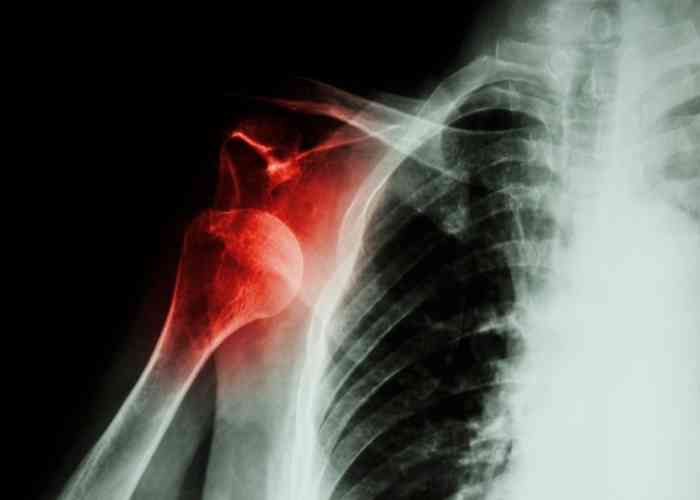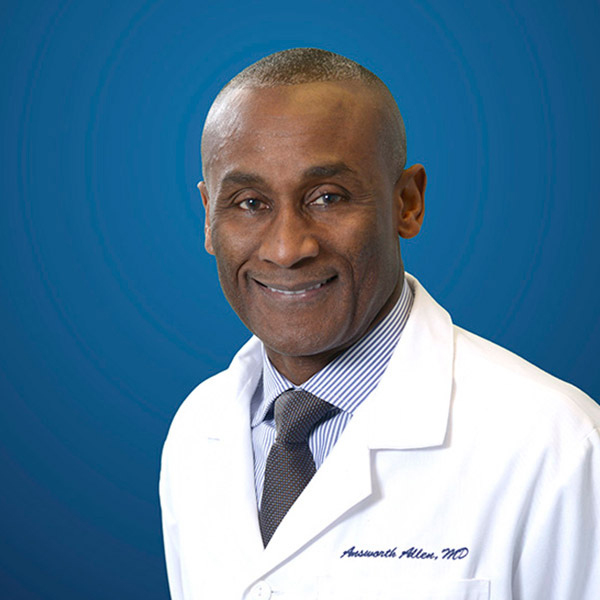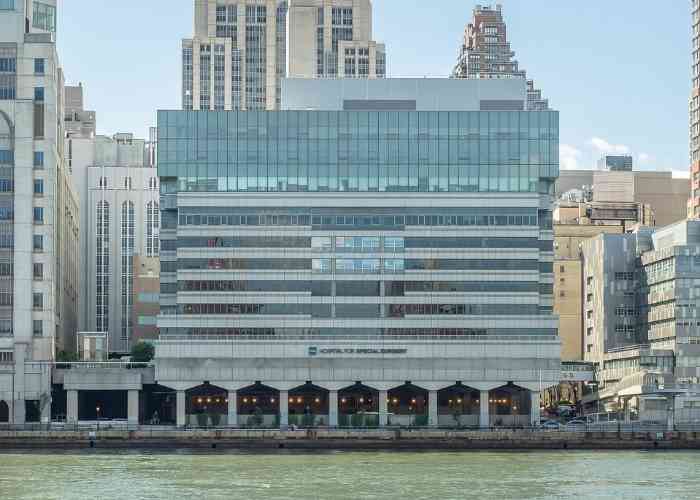What is a dislocated shoulder?
The shoulder is a ball-and-socket type of joint formed from the head of the humerus (upper arm bone) and the glenoid portion of the scapula (shoulder blade). The muscles of the shoulder allow for an incredible range of motion, yet the tendons provide poor stability with shoulder movement. This lack of stability allows the shoulder joint to become easily dislocated in three different ways: forward, backward, or downward. Athletes who participate in aggressive contact sports, such as football or hockey, are at a higher risk for shoulder dislocations. If a shoulder dislocation is suspected, it is essential to seek immediate medical attention. Dr. Answorth A. Allen, an orthopedic shoulder specialist serving patients in Manhattan, New York City, Westchester, Long Island and surrounding areas, has the knowledge and understanding, as well as substantial experience, in treating patients who have experienced a dislocated shoulder.

What causes shoulder instability? Is it related to a dislocated shoulder?
The ligaments of the shoulder can occasionally tear with a shoulder dislocation. This injury can result in shoulder instability if the damaged ligaments do not heal properly leading to recurrent joint separations. Athletes that perform repetitive overhead activities, such as those practiced in volleyball or swimming, are more likely to develop shoulder instability from the weakening of the shoulder ligaments.
What are the symptoms of a dislocated shoulder?
Shoulder pain following an injury is the most common complaint of a shoulder dislocation. Other common symptoms of a dislocated shoulder, or shoulder instability, include:
- Difficulty with arm movement
- Decreased range of motion
- Numbness of the affected arm
- A visibly displaced /deformed shoulder
- A “popping” or “crunching” sensation
How is shoulder instability diagnosed?
Dr. Allen will obtain a comprehensive medical history and physical examination to differentiate between a shoulder dislocation or shoulder instability. Diagnostic testing, including x-rays and magnetic resonance imaging (MRI), may be requested depending on the severity of the injury. Additional imaging, such as an arthrogram, may also be needed to rule out damage to any other structures within the shoulder.
What is the treatment for shoulder dislocation and shoulder instability?
If a shoulder dislocation is presumed, immediate medical attention by a medical professional or orthopedic shoulder specialist is advised.
Non-surgical treatment:
If a patient is diagnosed with a shoulder separation, manual manipulation of the humeral head back into the glenoid is of primary importance. This technique should only be performed by a medical professional who is experienced with the reduction of the shoulder joint. Pain should immediately be improved if the shoulder joint is successfully reduced.
With a successful shoulder joint reduction, Dr. Allen will immobilize this joint with a sling to allow proper healing of the ligaments. A combination of rest, ice, and non-steroidal anti-inflammatory medications is recommended. If the pain still persists with oral medications, a corticosteroid injection directly into the shoulder joint can be administered.
Surgical treatment:
In the cases of severe or complex shoulder instability, or if reduction of the shoulder joint is unsuccessful, Dr. Allen may recommend a shoulder arthroscopy. This minimally invasive surgical procedure utilizes a small camera (arthroscope) and specialized surgical instruments to view and repair the damaged ligaments of the shoulder. The arthroscopic approach is an effective technique for correcting shoulder instability but also reduces the recovery time for patients to return to their normal activities.
You can learn more about shoulder instability, shoulder dislocation, rotator cuff tears and their affect on shoulder instability by watching the video below.
Complex Shoulder Specialist

Do you participate in high contact sports such as football? If so, you may be at an increase risk of dislocating your shoulder. Shoulder dislocations can cause instability if repaired incorrectly, so it is important to meet an expert for treatment. Shoulder surgeon Doctor Answorth Allen provides diagnosis and treatment for patients in Manhattan, New York City, Westchester, Long Island and surrounding areas. To treat a shoulder dislocation and regain stability and range of motion, contact Dr. Allen’s team today!






